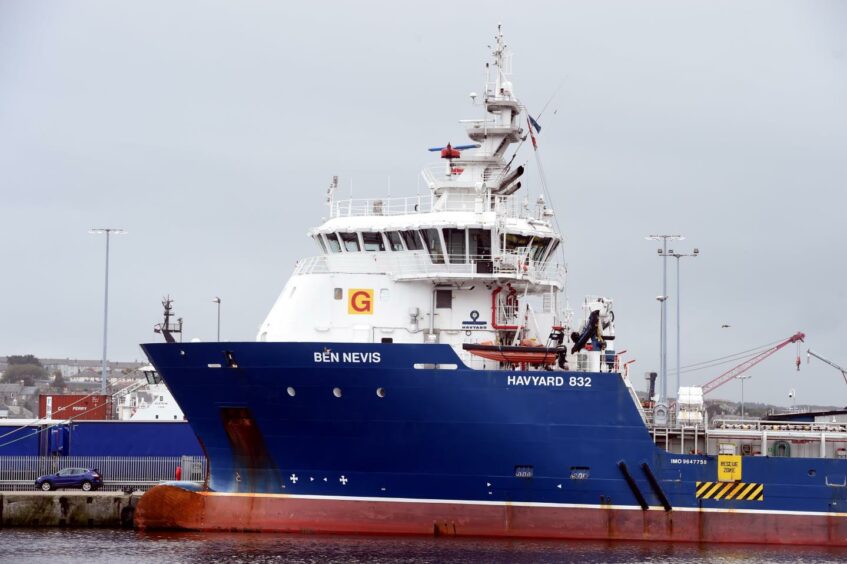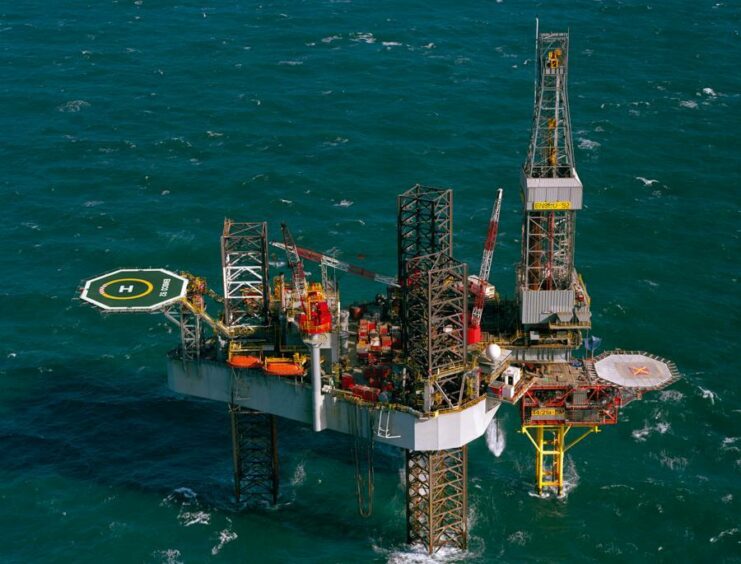
A leading union chief says a collision between an oil rig and a supply vessel in the North Sea is the result of “commercial pressure” on safety.
And Mick Lynch, general secretary of the RMT, believes the number of potentially serious incidents offshore will increase unless the supply chain improves its principles.
The Ben Nevis supply vessel sustained “significant damage” when it crashed into the front leg of the Valaris V92 jack-up rig last year, which was on contract to Harbour Energy. It’s understood the rig itself did not take any damage.
It happened while cargo was being unloaded and the ship was on the “drift-on” side of the rig where it was exposed to wind and currents.
A combination of the two pushed the Ben Nevis into the Valaris 92. The ship took on water and had to be returned to port.
In an improvement notice published on Wednesday the Health and Safety Executive criticised Valaris over the crash.
It said the drilling contractor had failed to implement a “safe system of work” to control ship operations within the 500 metre safety radius around rigs.
The watchdog added: “The manner in which you (Valaris) performed the marine operation was contrary to your client’s marine operations procedures, the vessels operating procedures, and recognised marine industry practice and guidelines, which advise that ‘risk of collision can be reduced by avoiding weather side working unless absolutely necessary and only under tight control after a risk assessment involving the vessel master and the OIM’ and ‘Any requirement to work on the weatherside of a facility must be risk assessed prior to moving into the set-up position’.”
Valaris was contacted for comment.
Mr Lynch says the accident “reflects a safety culture underpinned by commercial pressures”, slamming some operators for engaging in a “disgraceful” race to the bottom.
In 2020 the Ben Nevis was at the centre of a dispute over unpaid wages that led to it being detained in Aberdeen Harbour.
At the time it was owned by Inidan firm Global Offshore Services (GOS) but it has since changed hands – it’s understood it is now managed by Columbia Ship Management.
The Ben Nevis was released from Aberdeen Harbour after a few days but found itself in hot water again soon after and was detained in the Port of Rotterdam over a similar issue.
Mr Lynch said: “The previous owner of the Maltese-flagged Ben Nevis was caught out by maritime regulators in Aberdeen and Rotterdam for failing to pay seafarers wages, and at poverty rates. Now the new owner has been involved in an incident which reflects a safety culture underpinned by commercial pressures. The Valaris installation was damaged and lives were endangered, as the vessel was knowingly operated in contravention of procedures and good maritime practice.
“Commercial pressure is driving this dangerous behaviour. We have repeatedly called on industry and Government to address the issues around commercial pressure otherwise operators will continue to drive down standards, especially on health and safety, as well as pay, crewing levels and fatigue across the contractor supply chain. Looking at the platform supply vessel network we see consequences such as extended voyages of 2 months or more onboard, poverty pay, and in this case non-compliance with basic safety standards in order to win profitable contracts in the North Sea.
“The industry supply chain principles have to be strengthened, or reputable vessel operators employing domestic crews with proven safety standards and decent pay and conditions will continue to be undermined by this disgraceful race to the bottom. With that we will see the potential seriousness of these incidents increase.”

 © Supplied by Valaris
© Supplied by Valaris